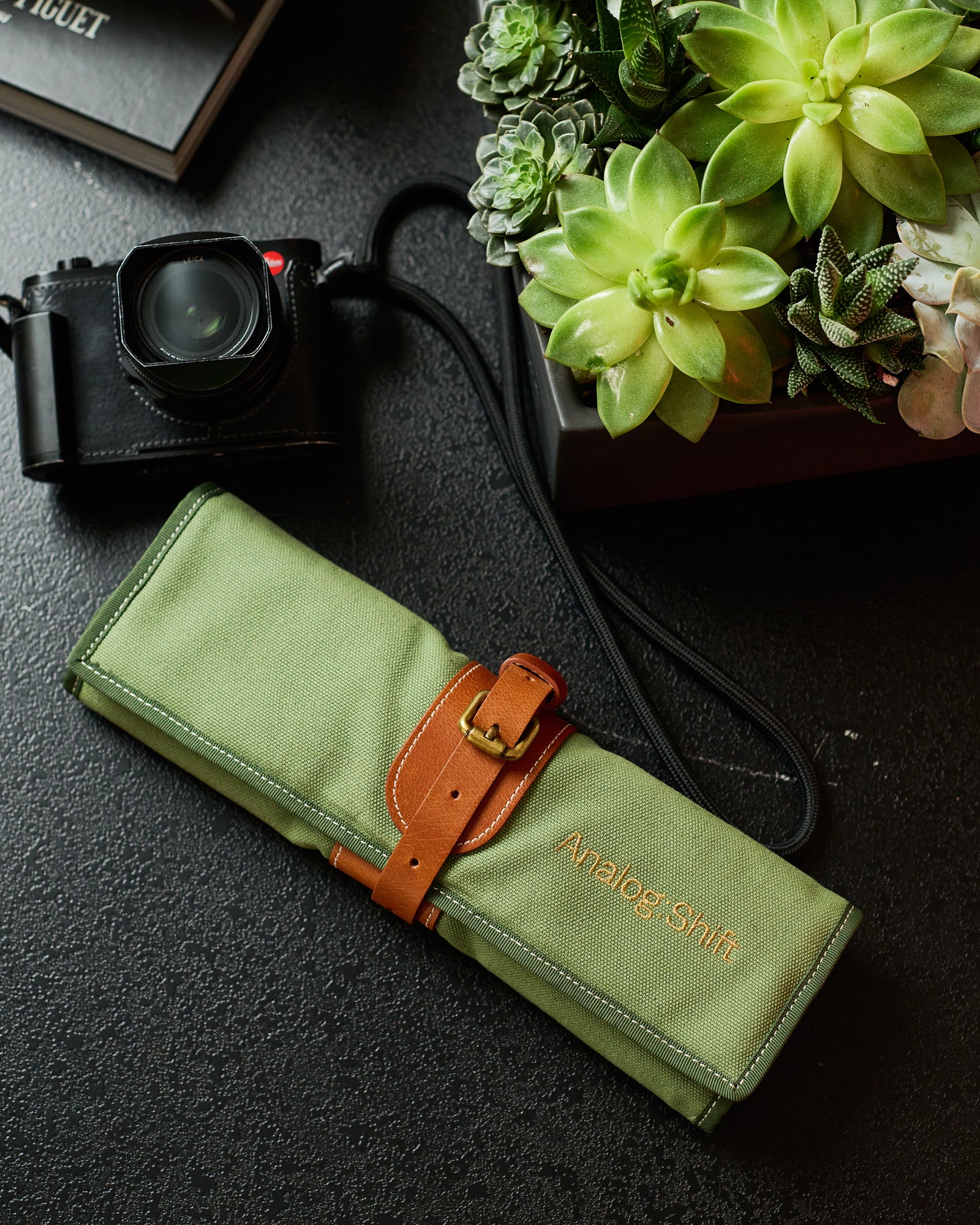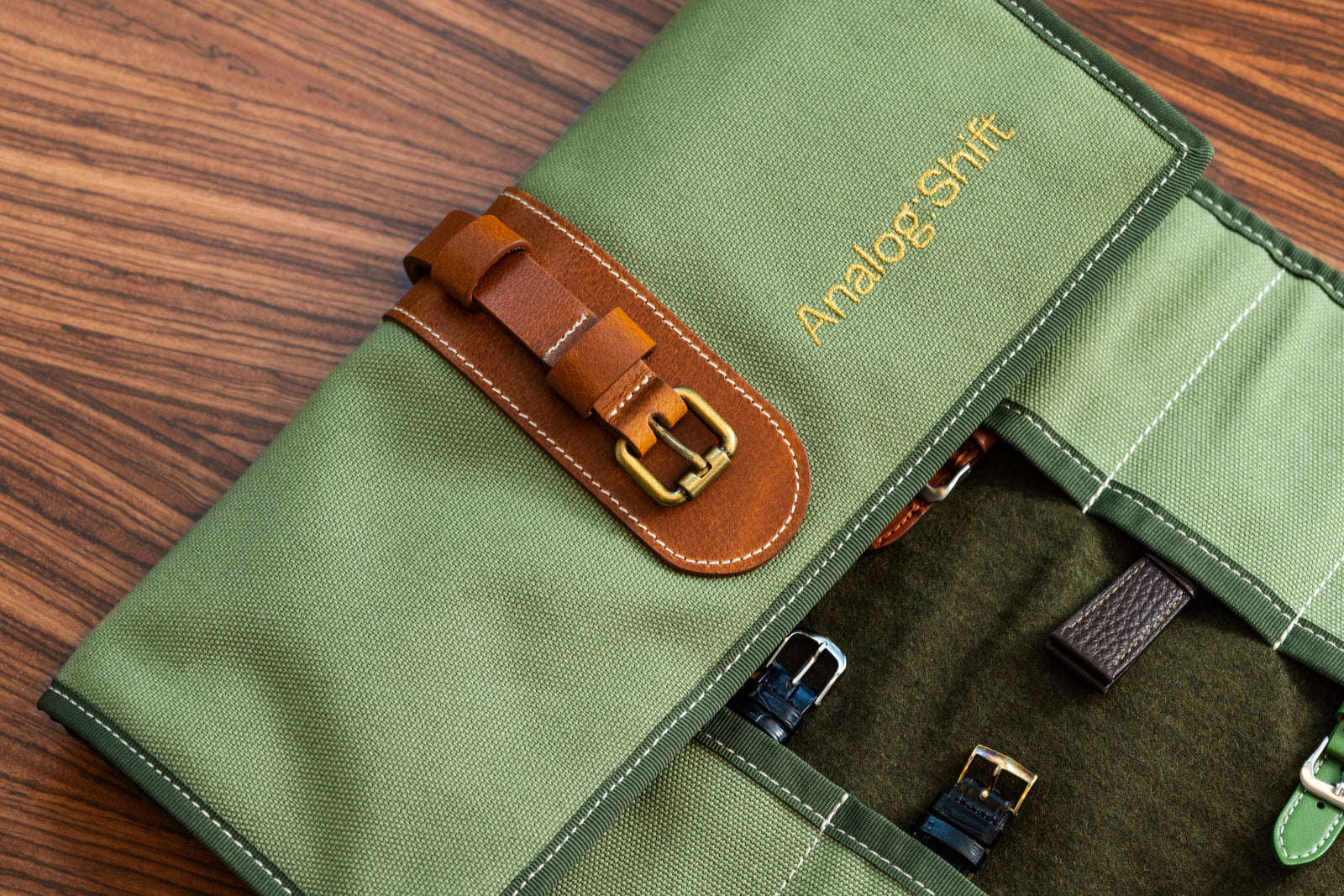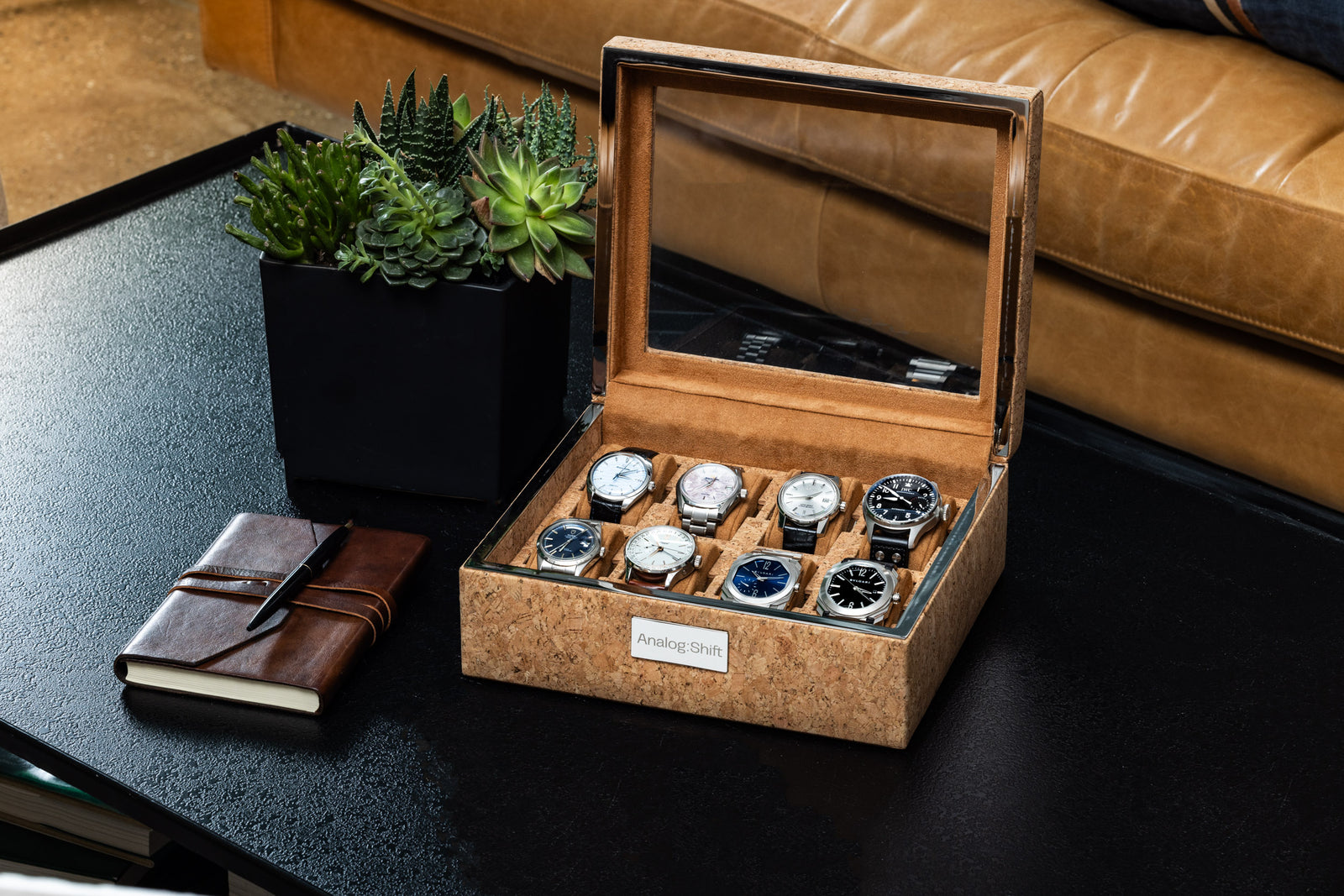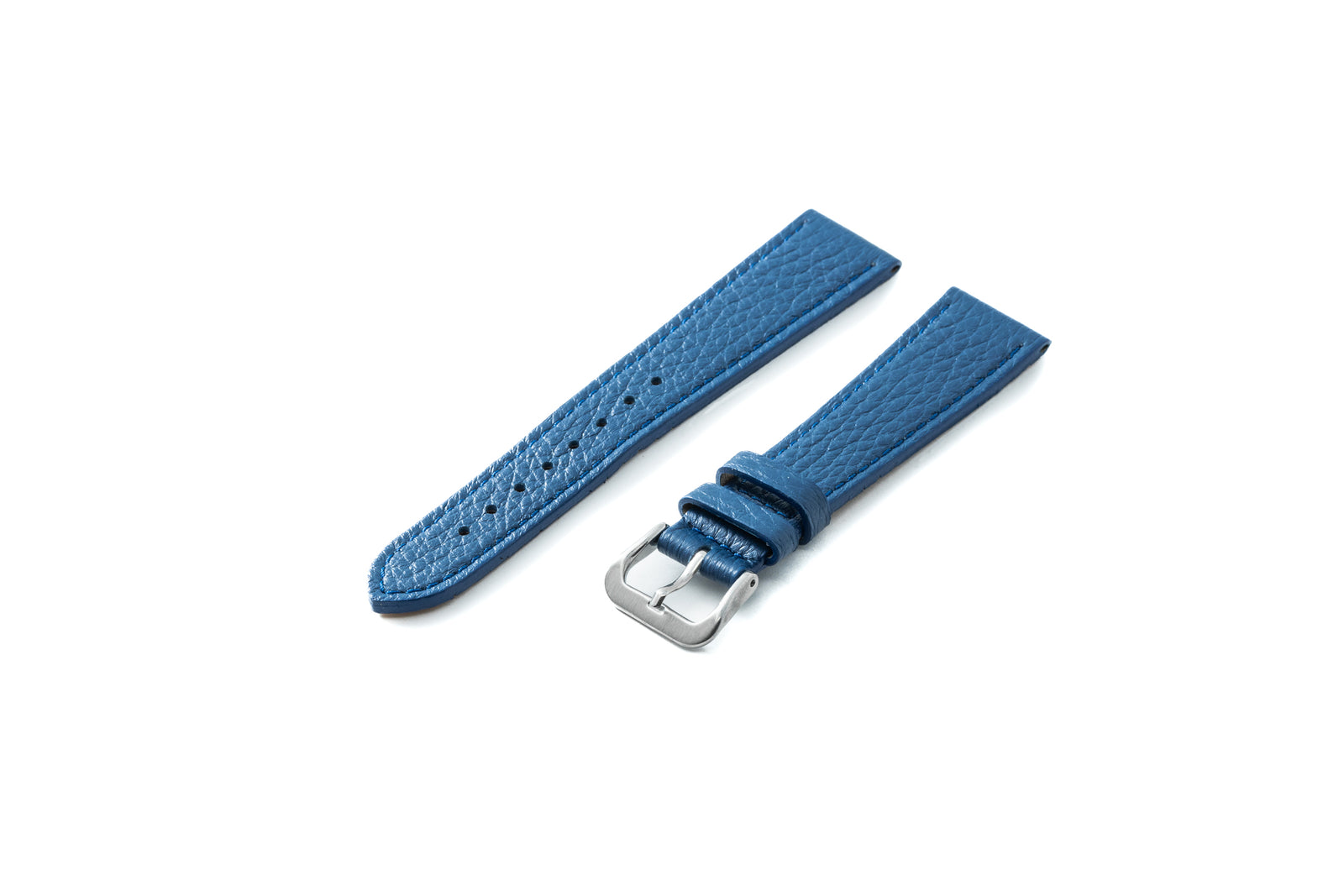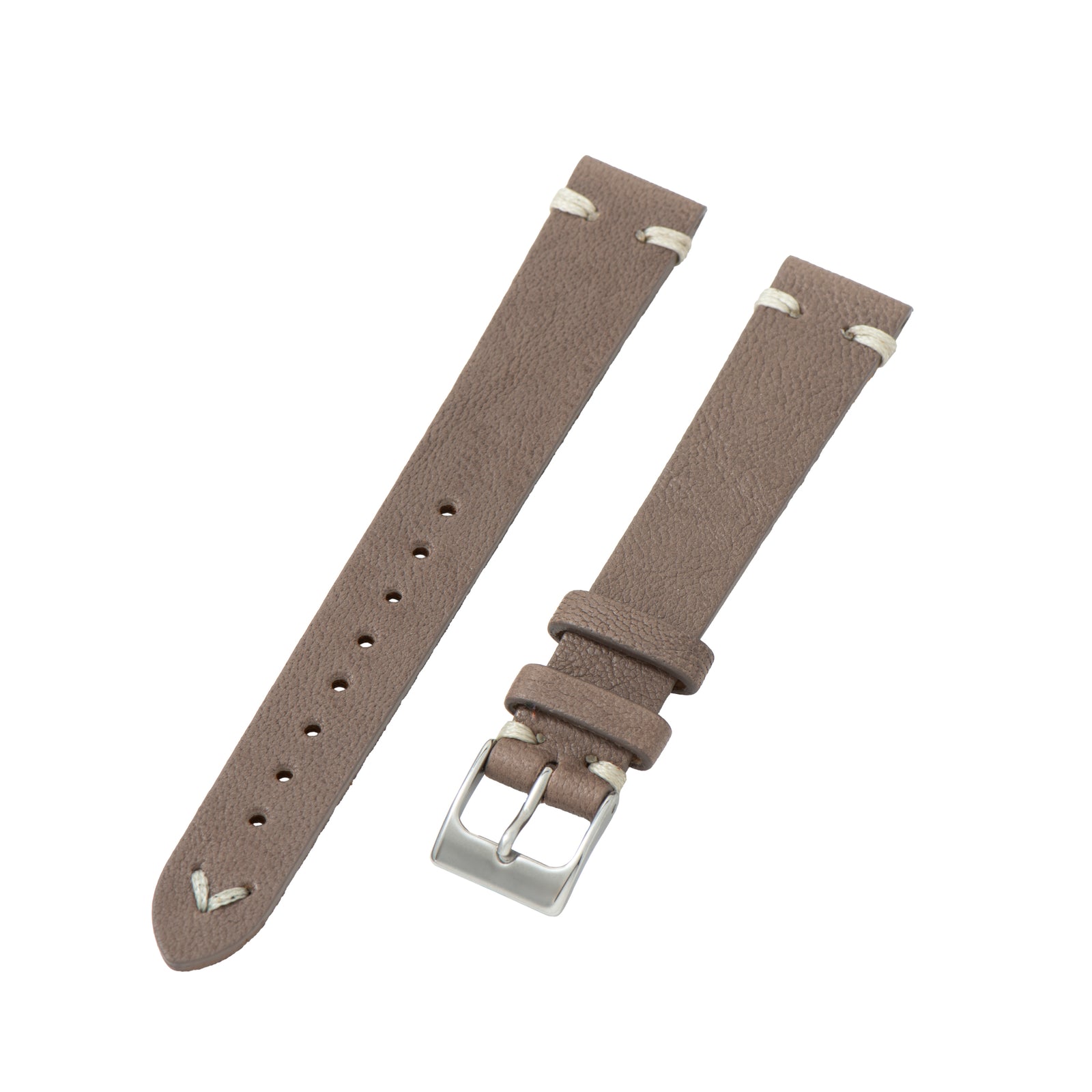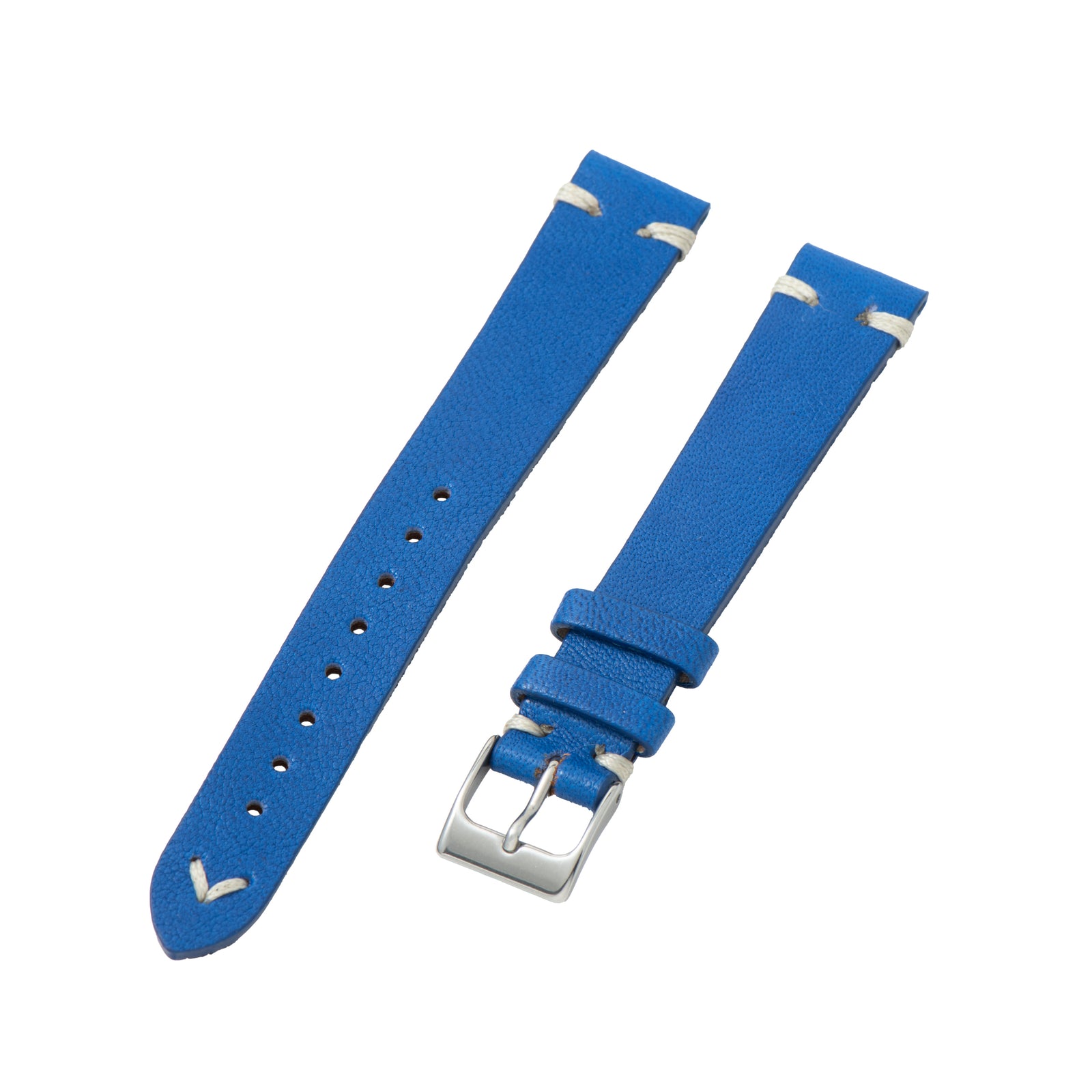Heuer Camaro
- Sold
- Sold
Why We Love it
–
Why We Love it
–When comparing Heuer's chronograph offerings, the Camaro is a definite outlier.
But despite its distinctive looks, the Camaro held only a short production run, making it much scarcer than its more popular stablemates such as the Carrera, the Autavia, and the Monaco. And while they've been cropping up more commonly in recent years on the collector circuit, there are iterations that are less frequently seen — this one, a Reference 73443T, being one of them.
At the time Heuer launched the Camaro, the company was trying to make inroads in the U.S. market. Hence the name “Camaro,” which was a direct homage to the muscle car that Chevrolet released two years prior in 1966. With Heuer's connection to Formula 1 being so deeply ingrained (with drivers like Jochen Rindt and Jo Siffert preferring the Autavia), the alignment between the Swiss watch manufacture and an American car company could seem incongruous. Yet from 1967 to 1969, the Chevrolet Camaro was the official pace car of the Indy 500, the most famous racing event in the United States, and thus Jack Heuer felt justified in choosing that name for his new chronograph.
However, by the time the watch was released in 1968, Heuer had turned its focus to producing an automatic chronograph movement, the Calibre 11, the debut of which would overshadow manual chronographs and turn the watch world on its head. When faced with the technological advantage of an automatic chronograph movement, sales of the Camaro languished despite the connection with motorsports. The Autavia, the Carrera, and the Monaco all got the new automatic movement, but the Camaro, owing to its smaller case size, did not, and Heuer ceased production in 1972.
Visually, at least, the Camaro has the same DNA as that of the Carrera and the Monaco. Certainly, the Carrera and the Camaro have similar dials and hands, and there’s no denying that the Camaro's case has much in common with that of the Monaco — perhaps the most distinctive square-case chronograph around.
But the Camaro has design quirks that make it a watch all its own. Take the variety of finishing on the case — a gorgeous sunburst pattern on the front that softens the look of sharp, polished sides and straight lugs. And while the Monaco feels almost ungainly on the wrist, the hand-cranked movements used in the Camaro (a Valjoux 7734 in this instance), allowed for a smaller, svelter case that wears exceptionally well, even by modern standards.
This example features an absolutely stunning “exotic” dial configuration — a black-on-white panda with a bright orange chronograph sweep hand. Housed in a 37mm ‘squound’ stainless steel cushion case with an acrylic crystal, signed crown, and fluted pushers, it features an outer tachymeter track and a date window at 6:00 which gives the symmetrical dial a sporty touch that harkens to the form-follows-function design language of the golden era of motorsports.
With an honest-worn case and a vibrant dial, this particular piece is an excellent example of an uncommon reference — enough to whet the appetite of any lover of obscure Heuer chronograph designs.
Brand Story
+
Brand Story
+He had already played a role in the design of some timepieces, starting with the Solunar in the late 1940s. But in 1962, the responsibility of running the company fell on his shoulders, and he found himself faced with the daunting task of safeguarding his ancestor’s legacy while at the same time forging his own. His chosen path? Moving into a line of technical instruments for use in sporting and transportation applications.
The Heuer name was not unknown in motor racing and aviation circles. Starting in 1911, when the sport of automobile racing was still in its infancy, the company produced dashboard clocks for cars, boats, and even airplanes. Jack Heuer, a longtime racing aficionado, saw an opportunity to revitalize — or at the very least, to reexamine — the company’s already-successful line of chronographs.
He had first tried his hand with the Autavia, which at the time of his succession was a stopwatch with a virtually illegible dial. In its place he launched the line of Autavia wrist chronographs, the first line of chronographs produced by Heuer to be named, rather than simply numbered. The Autavia was purpose-built for racers and pilots, and attracted the attention of Formula 1 racers and devotees such as Jochen Rindt and Steve McQueen.
In designing the Carrera in 1963, Jack Heuer created something that was entirely his, and is without question the chronograph that is most associated with the brand today. Heuer's obsession with legibility led to a dial design that was simpler to read than the Omega Speedmaster or the Rolex Daytona (released the same year as the Carrera). What resulted was a chronograph with plain baton markers that gave only the most necessary bits of information — clean, uncluttered, undeniably attractive.
The brand grew to become a powerhouse in chronographs in particular, and the list of famous designs from the 1960s and 1970s can’t be counted on two hands. However, one innovation from 1969 deserves particular mention: the famed Caliber 11. This caliber (and its successors) was the result of a multinational race to build the world’s first automatic chronograph movement. It would go on to power the famed Monaco — made famous by actor Steve McQueen — as well as automatic versions of the Autavia, Carrera and more.
Falling on hard times in the wake of the Quartz Crisis, Heuer was ultimately purchased by Technique Avant Garde (TAG), and subsequently by Louis Vuitton Moet Hennessey, who brought the brand into the modern age. Early TAG Heuer quartz divers from the 1980s have found newfound appreciation in collector’s circles, while the brand’s modern catalog is a mix of vintage-inspired reissues and unique collections, such as the Connected smartwatch line.
A:S Guarantee
+
A:S Guarantee
+Our Pledge
Analog:Shift stands behind the authenticity of our products in perpetuity.
Condition
Since our pieces are vintage or pre-owned, please expect wear & patina from usage and age. Please read each item description and examine all product images.
Warranty
We back each Analog:Shift vintage timepiece with a two-year mechanical warranty from the date of purchase.
International Buyers
Please contact us prior to purchase for additional details on shipping and payment options.
Shipping & Returns
+
Shipping & Returns
+All of our watches include complementary insured shipping within the 50 states.
Most of our products are on hand and will ship directly from our headquarters in New York City. In some cases, watches will be shipped directly from one of our authorized partners.
We generally ship our products via FedEx, fully insured, within 5 business days of purchase. An adult signature is required for receipt of all packages for insurance purposes. Expedited shipping is available at an additional cost. We are also happy to hand deliver your purchase in Manhattan or you may pick it up at our showroom.
Returns must be sent overnight or by priority international delivery, fully insured and paid for by the customer. A restocking fee may apply. Watches must be returned in the same condition as initially shipped.
We welcome international buyers, please contact us prior to purchase for additional details on shipping and payment options.
Make it yours will fit standard 19mm watches

DeVille Black Matte Calf Strap
- Regular price
- $89
- Regular price
- Sale price
- $89
- Unit price
- per

StrapHabit x Analog:Shift Orange Tropical Retro-Style FKM Rubber Quick-Release Strap
- Regular price
- $33
- Regular price
- Sale price
- $33
- Unit price
- per
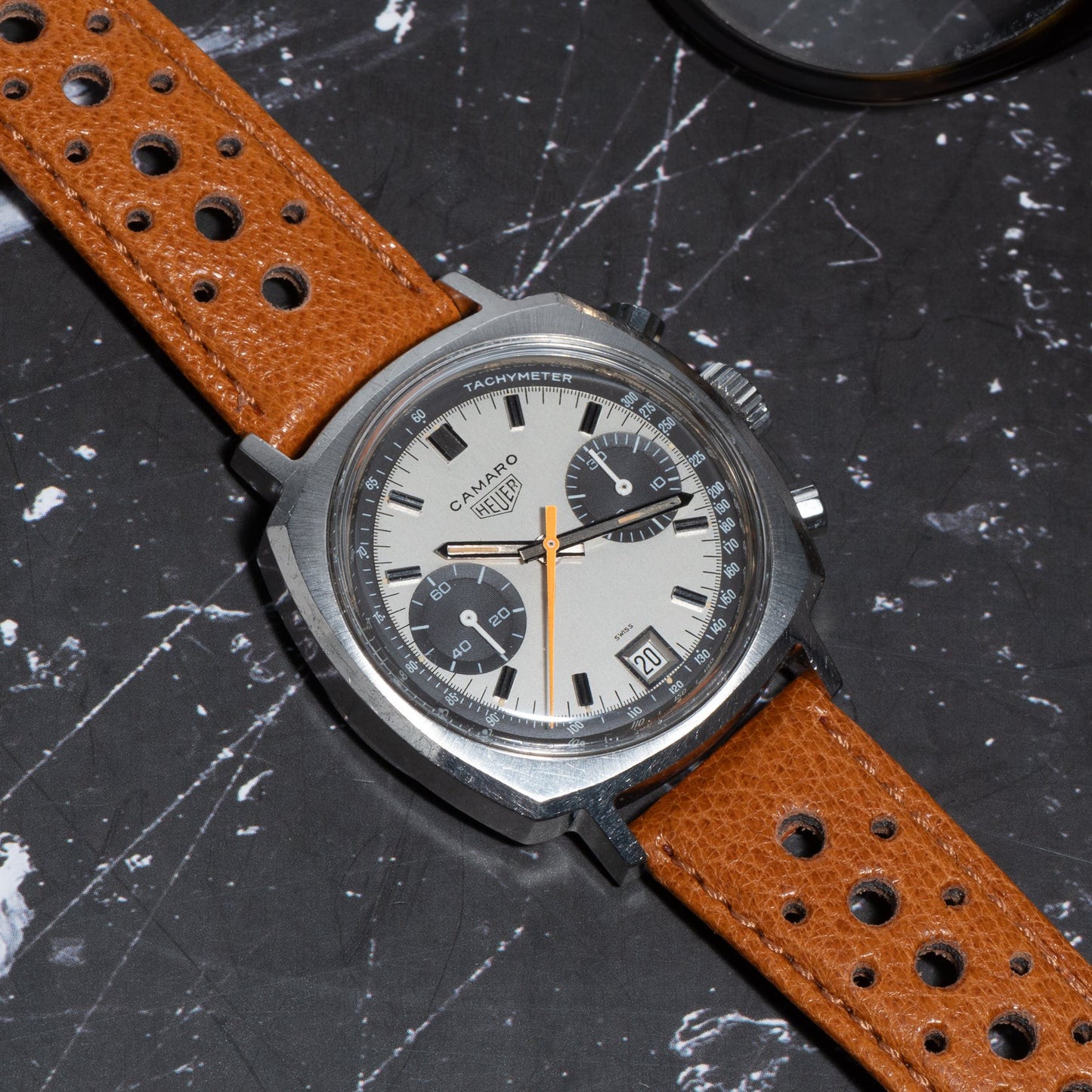
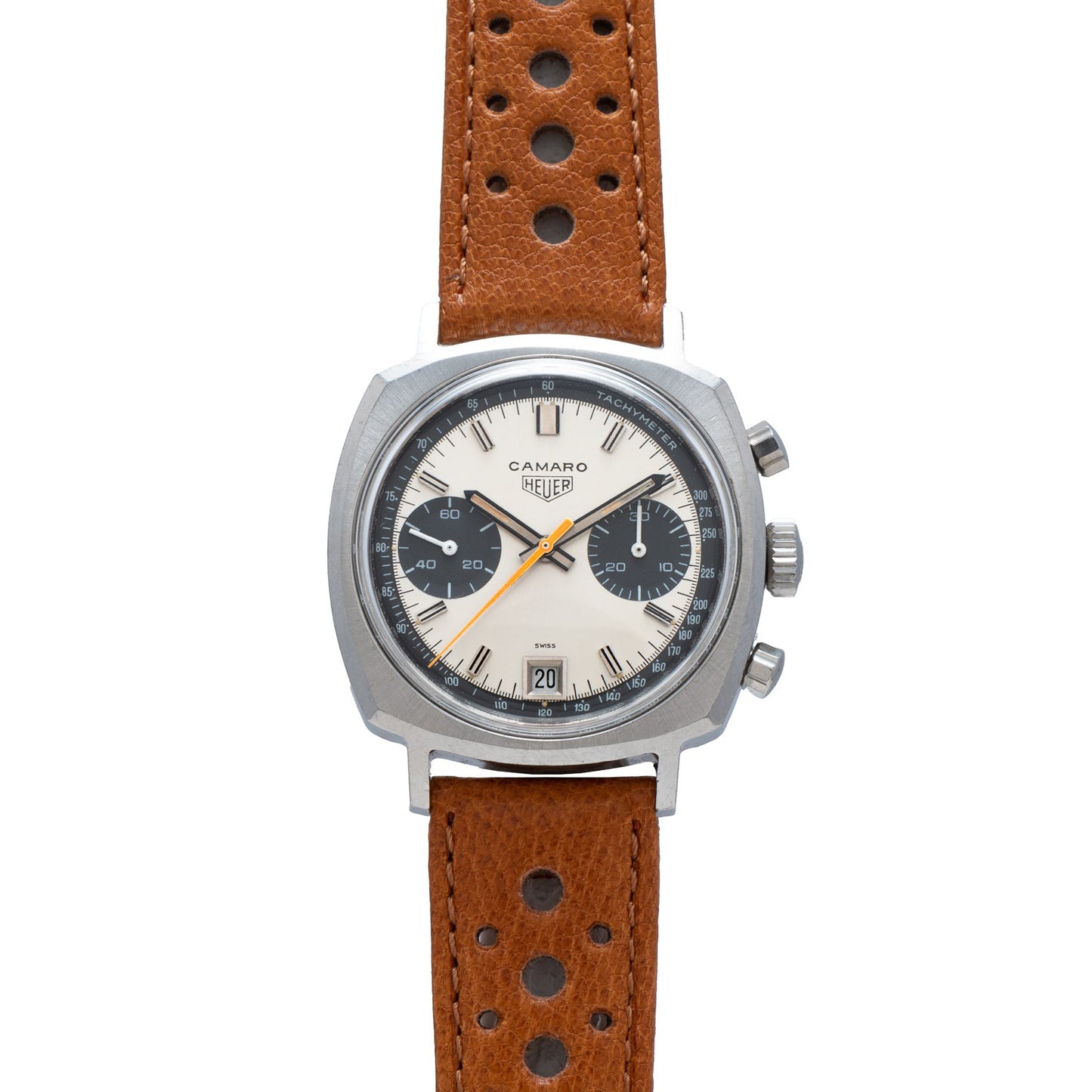
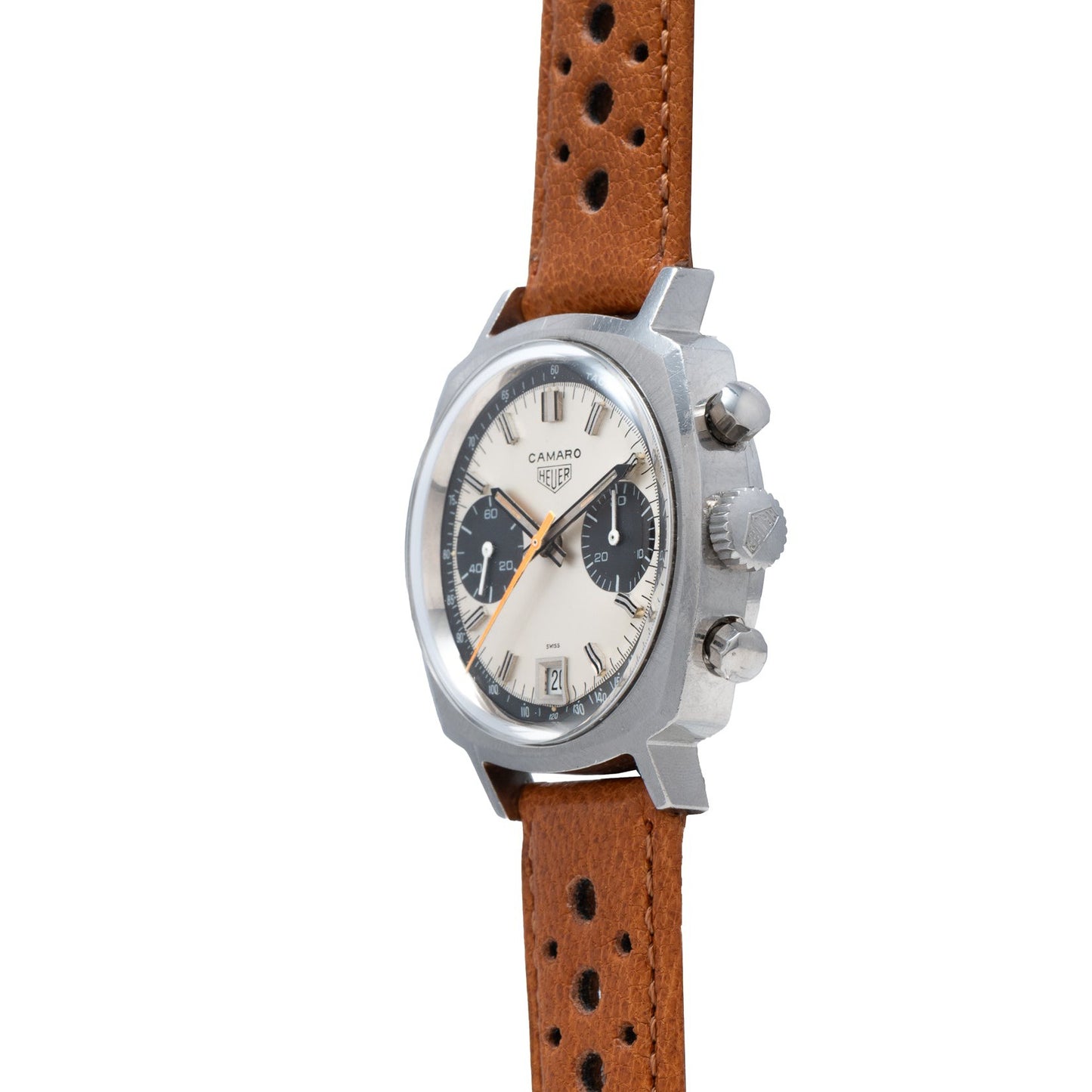
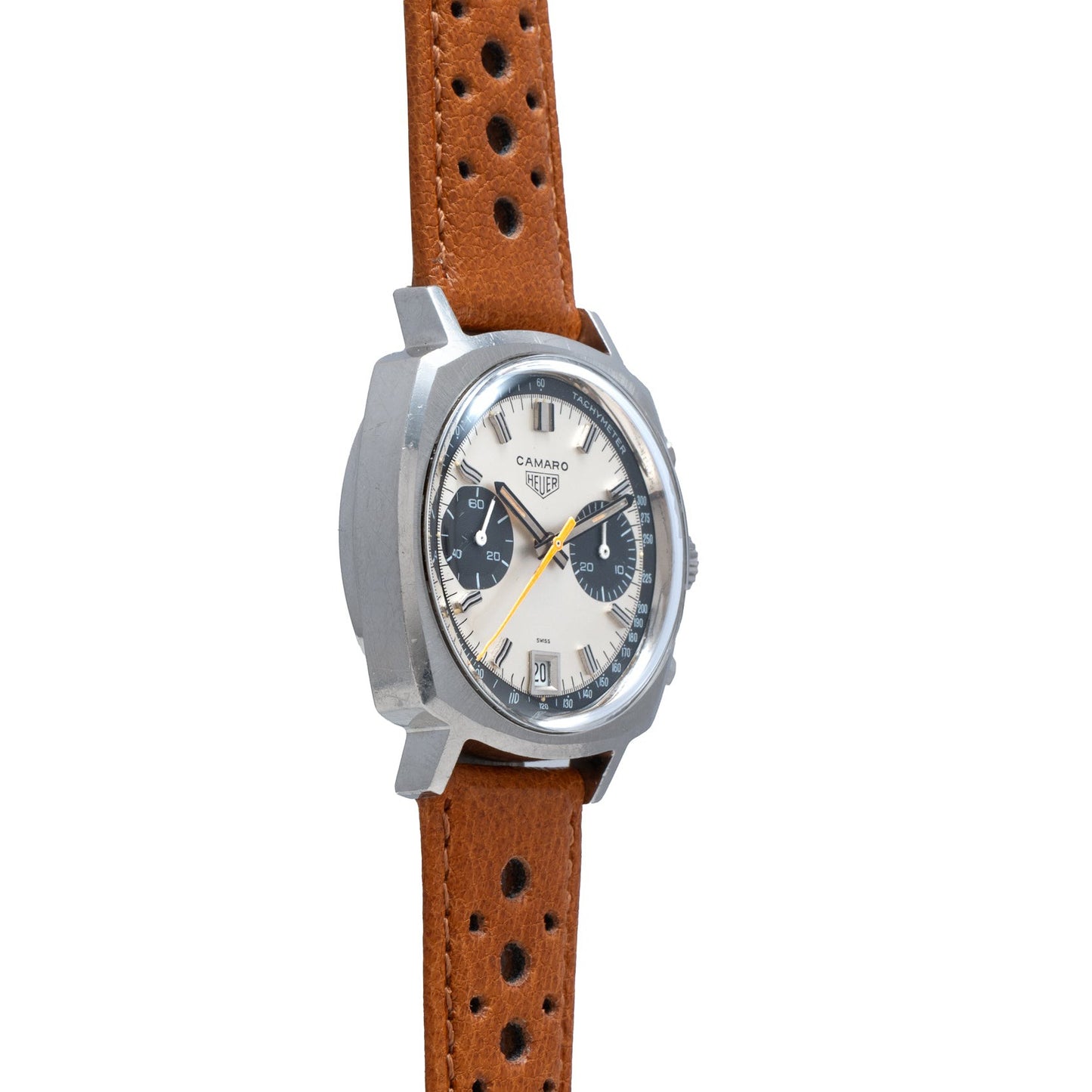
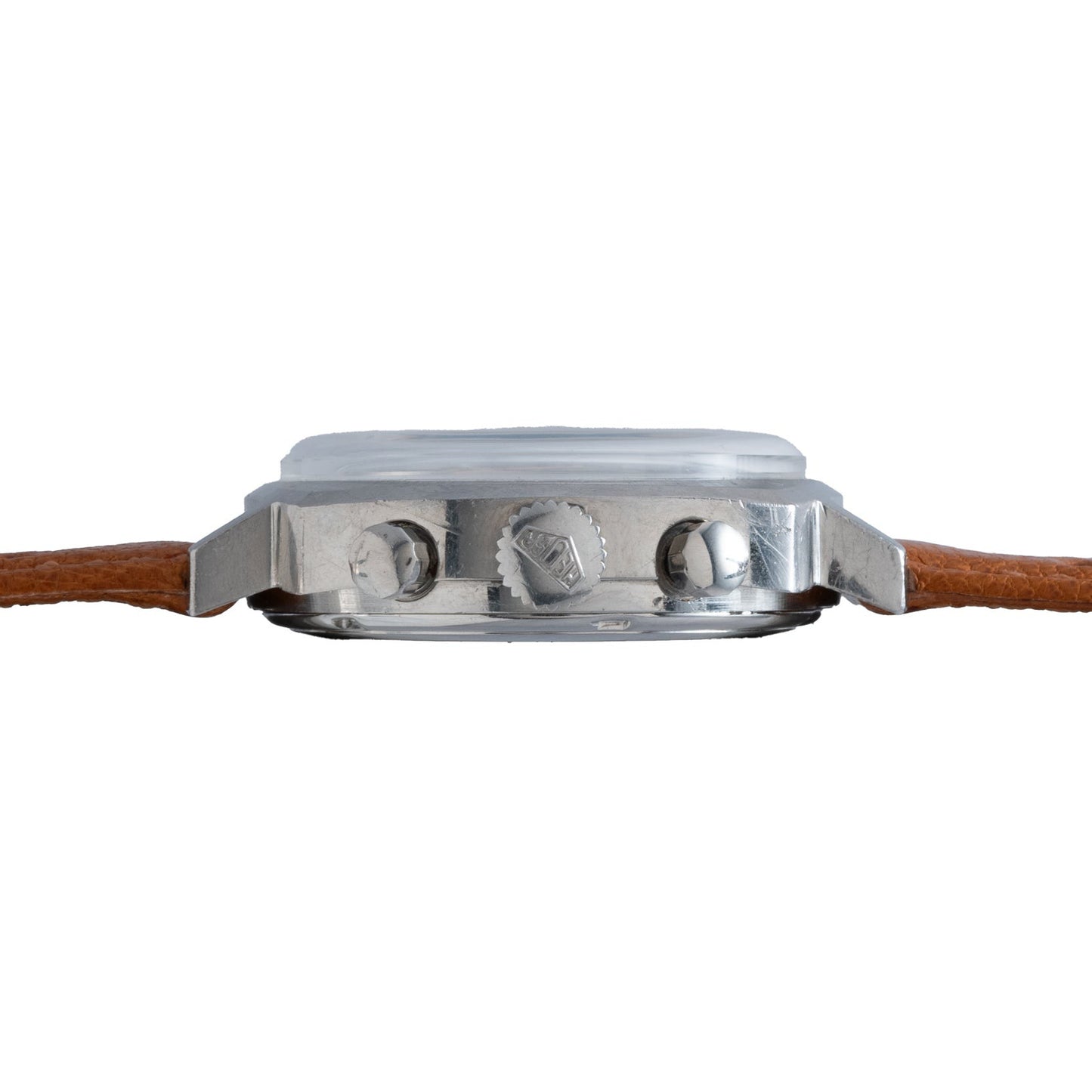
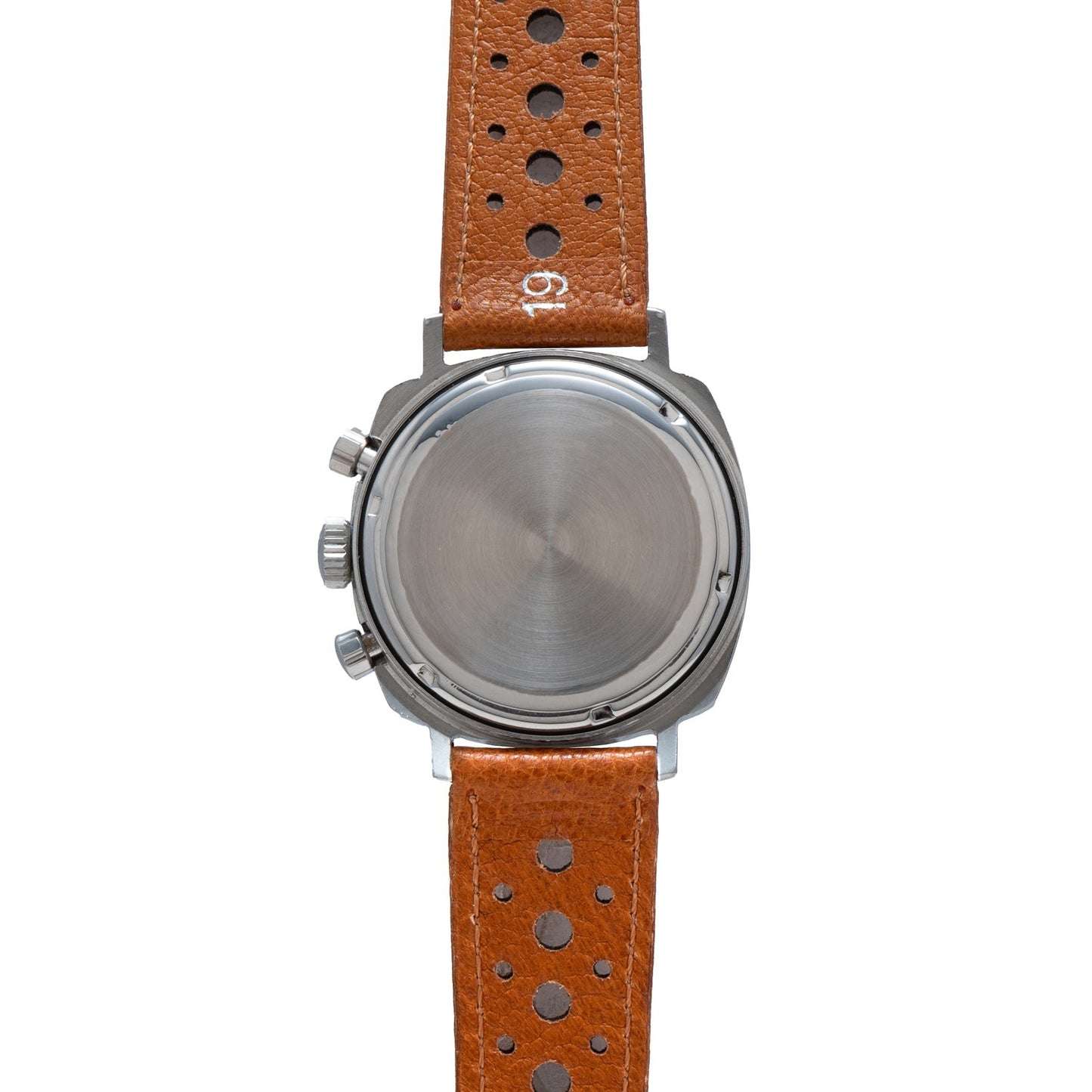
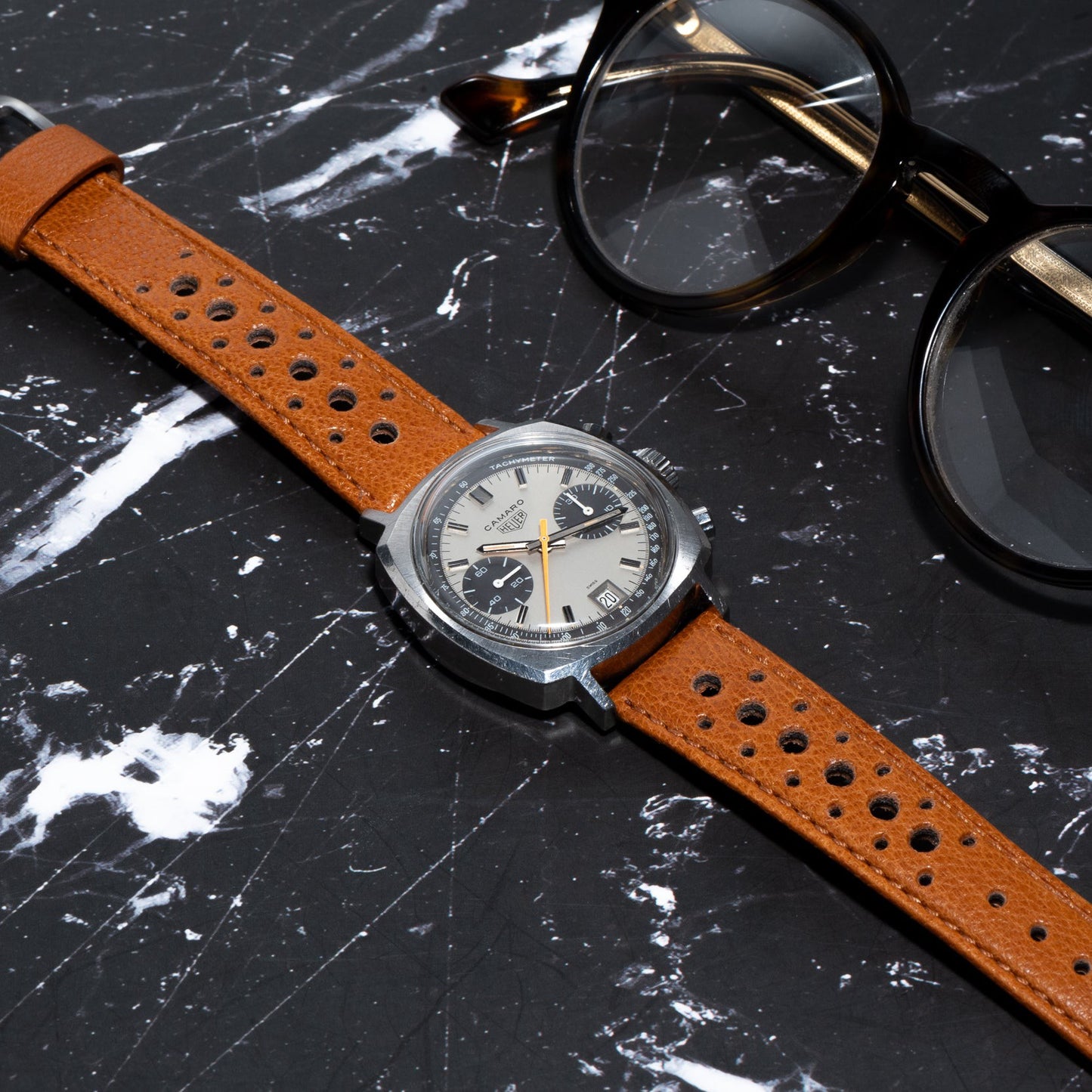
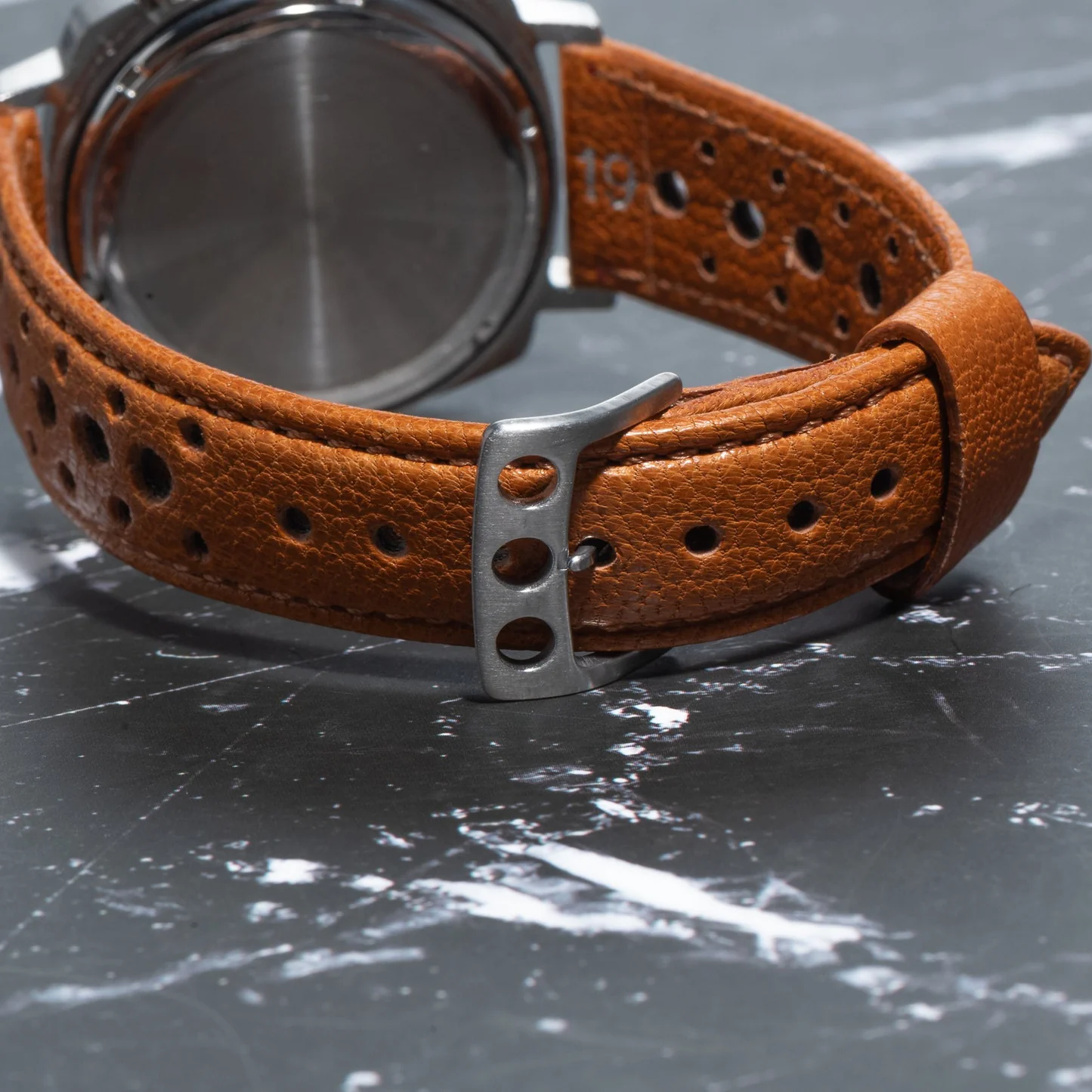

Heuer Camaro
- Sold
- Sold








